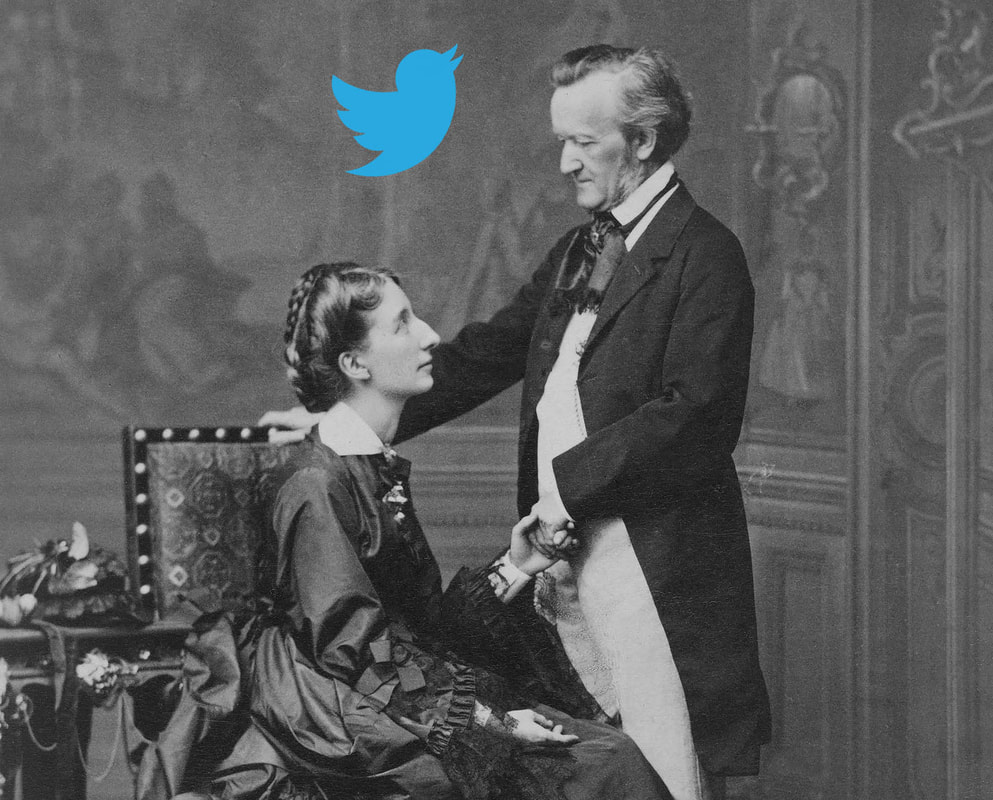|
"On Christmas Day, my 31st birthday, this notebook was to have started; I could not get it in Lucerne. And so the first day of the year will also contain the beginning of my reports to you, my children. You shall know every hour of my life, so that one day you will come to see me as I am; for, if I die young, others will be able to tell you very little about me, and if I ive long, I shall probably only wish to remain silent."
On January 1, 1869, a few weeks after leaving her husband Hans von Bülow to live with Richard Wagner, Cosima began a diary that she would continue until February 12, 1883, the day before Wagner died. Under the button you can find a collection of diary excerpts in a string of tweets.
0 Comments
|
Archives
September 2023
Name/dropping
All
|


 RSS Feed
RSS Feed